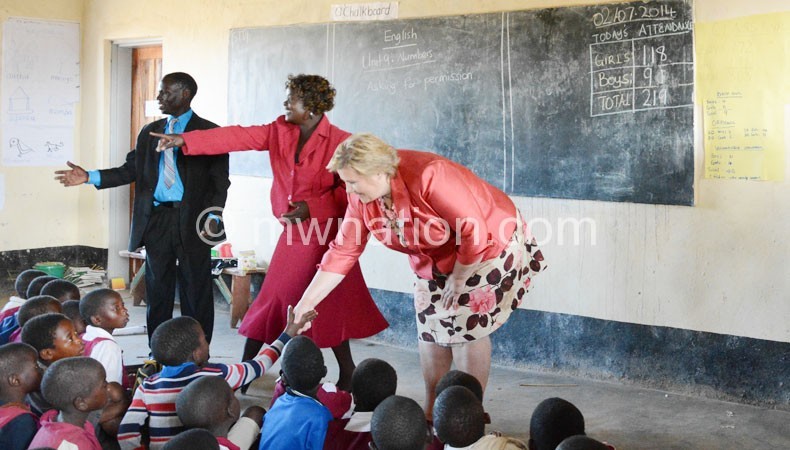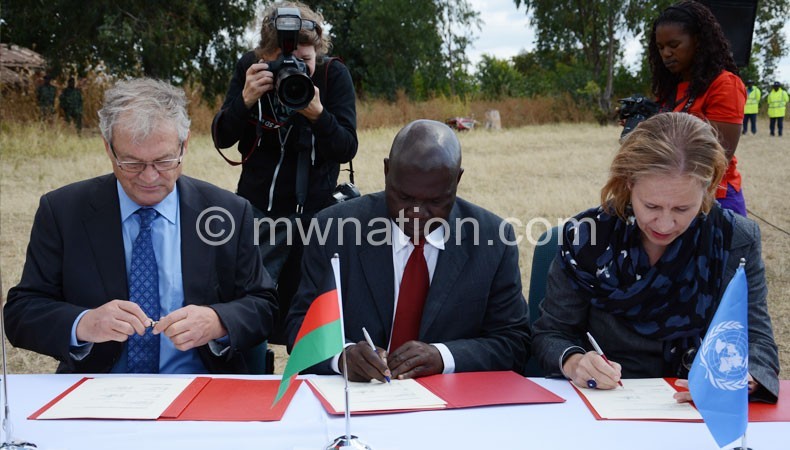UN, Norway to support girls’ education in Malawi
A new initiative to ensure better education for girls in Malawi has been launched by Norwegian Prime Minister Erna Solberg in Dedza.
Improving Access and Quality of Education for Girls in Malawi is a three-year, MK 7.2 billion programme that provides a range of interventions to address key threats to girls’ education: poor food and nutrition, inadequate protection, poor-quality schooling and violations of girls’ sexual and reproductive rights.

Funded by Norway, the initiative is supported by the United Nations through the UN Children’s Fund (Unicef), the UN World Food Programme (WFP) and the UN Population Fund (Unfpa).
The programme will be implemented initially in selected schools in Dedza, Salima and Mangochi districts.
Education is key to fighting poverty, and my government believes educating girls is the single most powerful investment for development. When you educate a girl, you educate a nation,” says Norwegian Ambassador Asbjørn Eidhammer. “My government is encouraged by President Mutharika’s personal engagement and his Government’s commitment to educating the young. Norway will work together with Malawi to ensure quality education for all,” says the Ambassador.

“We can deliver immunizations and aid to children to safeguard their health and keep them alive,” says Unicef Representative Mahimbo Mdoe. “But, without delivering education, especially for girls, we’ll end up returning to communities, generation after generation, to help the children of the children we failed to help in the first place. We’ll also perpetuate cycles of inequality within society. There is no better time to invest in education than now.”
Getting girls to stay in school remains a major challenge in Malawi. According to Government of Malawi figures, only 27 percent of girls complete primary education. Boys, on the other hand, perform better than girls in mathematics and reading, and are more likely to embark on post-primary education.
Only half of Malawian girls aged 15-24 are literate. Gender parity now stands at 1:1 in the lower primary school grades but disparities emerge as early as standard 4, with girls dropping out before they acquire basic literacy skills and repeating years to a greater extent than boys.
“There’s increasing evidence of the impact of school feeding and take home rations on access to food and to education, especially for girls from poor households,” says WFP Representative Coco Ushiyama.
“Girls in WFP-supported schools in Malawi have 10 percent lower dropout rates than the national average. Also, the graduation rate of girls from primary to secondary school is 7 percent higher in WFP-supported schools compared to non-supported schools.”
Malawi Joint UN – Norway News Release FINAL for Release by John Richard Kasalika





